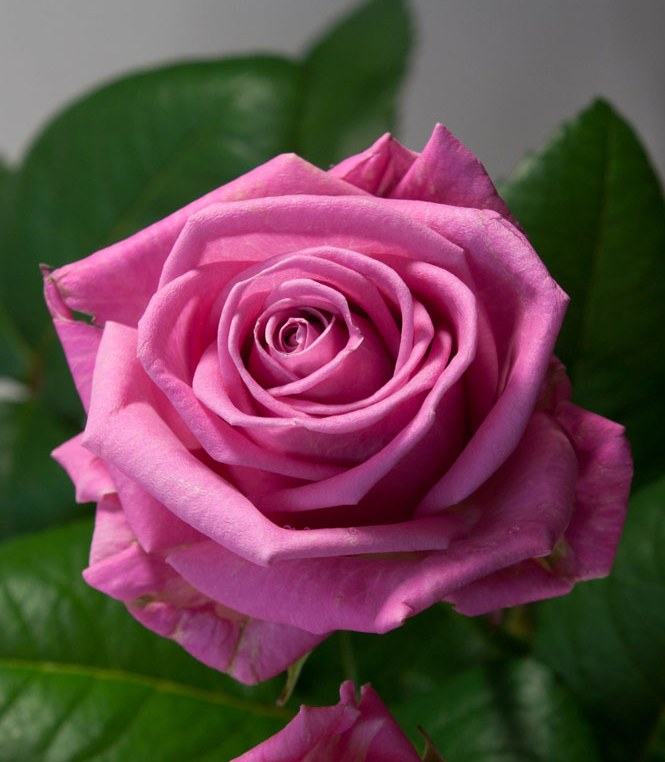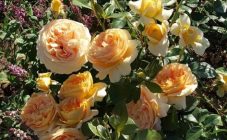Content:
The exquisite beauty of roses has always been and will be a landmark of any garden. However, the efforts of breeders around the world were aimed at ensuring that their diversity and quality characteristics exceeded all facets of the possible.
Description of culture
The history of the origin of the variety originates in Holland, where the leading breeders of the country worked on the hybridization of the tea rose and remontant crops. The specimens obtained as a result of such crossing were combined into a group called hybrid tea roses, which steadfastly took a leading position in relation to other varieties.
Characteristics and features of the variety
Rose aqua - the name itself already speaks of the purity of the color. It combines flowers from light to lilac-pink. The unusual cold shade of pink buds, which can change throughout the entire flowering, has won over more than one gardener.
Dense flowers about 8-12 cm in diameter do not disintegrate and protect the core from blooming for a long time. Dense double buds consist of 30-45 petals. Graceful straight stems framed by rich green leaves and a minimal number of thorns can reach 80-100 cm in height (although the variety is medium-sized), which makes this variety a favorite favorite in cuttings for compositions and bouquets.
This variety has a delicate aroma and pleases with its flowering from the beginning of June until the first frost. With proper care and timely mulching, it will perfectly survive the winter cold.
Features in agricultural cultivation
Refined and obstinate - such a definition in the description could be given by experienced gardeners to rose aqua for its unpredictable behavior. Indeed, this variety does not at all possess unpretentiousness, but it is important to know a few simple rules so that this flower would please its fans with long flowering and fullness of colors.
The optimal soil for growing is the acidity index of which is close to neutral (pH 5.8 - 6.5). The variety requires an open sunny area, well-ventilated and protected from the north side by dense tall vegetation or a wall - a guarantee of abundant rose bloom. Watering at the root, moderate.
Rose aqua is sensitive to excess moisture in the root system. At the same time, it instantly loses the color of the petals, in whole or in part, and with it - its attractiveness.
It is better to use as top dressing:
- ammonium nitrate (50g per 10l) and potassium-phosphorus fertilizers - in the spring;
- complex mineral and organic (humus) - in summer.
The fertilization process is carried out in stages: the soil is pre-moistened, then additives are added according to the season. Then cover the fertilized area with hay or chopped bark.
Pruning stems is mandatory in the fall, with sterile, well-sharpened pruning shears. The sections must be smooth, otherwise you can bring in the causative agent of the disease, which will make itself felt in the spring.
Advantages and disadvantages of the variety
Hybrid tea rose Aqua will certainly adorn any garden due to:
- spectacular type of buds;
- continuous flowering during the summer until the first frost;
- resistance to those diseases that affect other hybrid tea varieties;
- good frost tolerance down to -10 ° С.
The disadvantages are manifested only in the lack of proper care:
- susceptibility to black spot and some other fungal diseases;
- loses its decorative effect (petals turn pale and curl) under unfavorable conditions.
This variety, like many hybrid tea roses, is especially popular with florists and is grown primarily for commercial purposes. Bouquets and compositions collected from such roses look royal elegant and delightfully gentle.















